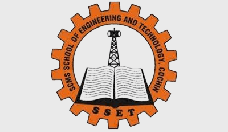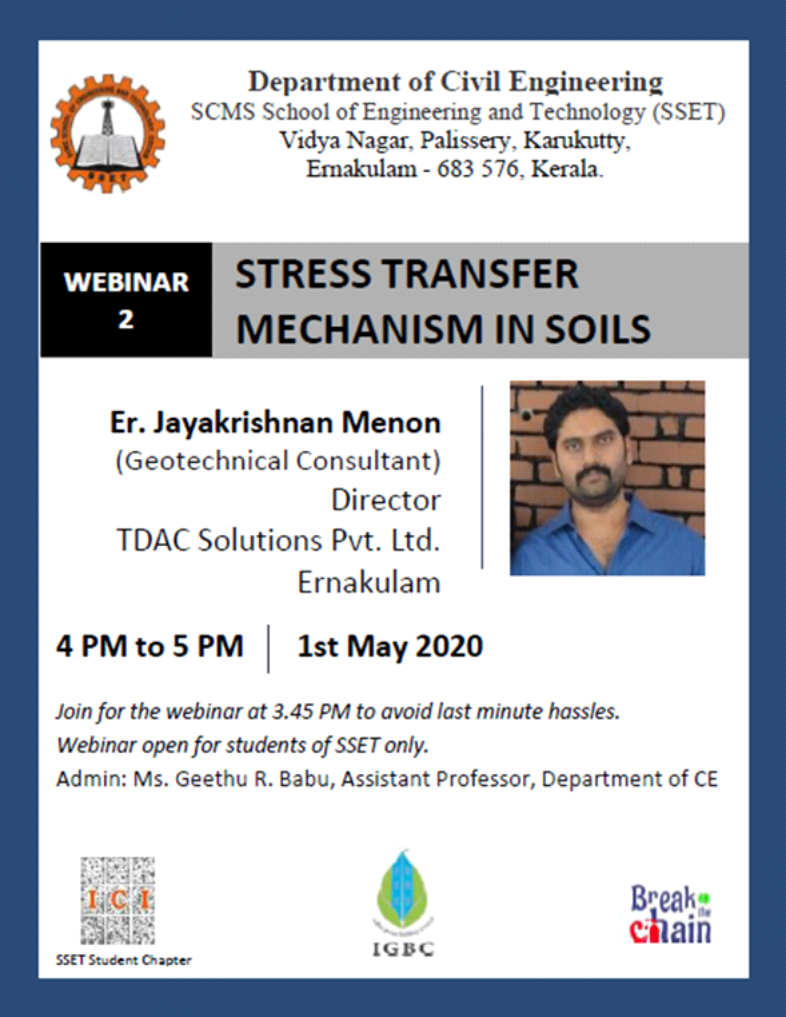DEPARTMENT OF
Civil Engineering
The Department of Civil Engineering at SSET, established in 2001, is characterized by its dedicated and experienced faculty. It offers both undergraduate and postgraduate programs in Civil Engineering, specializing in Computer Aided Structural Engineering and Environmental Engineering. The department’s teaching approach emphasizes professional ethics and service learning, integrating community service with instruction. Interactive sessions with industry experts, seminars, workshops, and conferences keep students and faculty updated on industry trends. The department’s seven well-equipped laboratories support research activities and consultancy projects for government and non-government organizations. Notable projects include site surveys, road surveying, and environmental impact assessments. Additionally, the department collaborates closely with SCMS Water Institute (SWI), contributing to sustainable water management and community development. SWI’s consultancy work, such as water auditing, rainwater harvesting, and disaster preparedness planning, provides students with valuable real-world experience. The success of the department’s alumni in academia, industry, and government organizations globally attests to the quality of education provided. In summary, the Department of Civil Engineering at SSET is dedicated to providing a holistic education that emphasizes practical experience, community engagement, and research, benefiting both its students and the community it serves.

Vision
- To be a Department of excellence providing quality education and to engage in research activities in diverse fields of Civil Engineering.
Mission
- Impart quality education to our graduates in all fields of Civil Engineering.
- Mould technically competent graduates who are prepared to meet the current global engineering challenges.
- Create socially committed and ethically responsible professionals performing cutting edge research that will positively impact and improve our profession and society.
- Instill in our graduates a passion for lifelong learning.
POs,PSOs,PEOs
| Program Outcomes | |
|---|---|
| PO1 | Engineering knowledge: Apply the knowledge of mathematics, science, engineering fundamentals, and an engineering specialization to the solution of complex engineering problems. |
| PO 2 | Problem analysis: Identify, formulate, research literature, and analyze complex engineering problems reaching substantiated conclusions using first principles of mathematics, natural sciences, and engineering sciences. |
| PO 3 | Design/development of solutions: Design solutions for complex engineering problems and design system components or processes that meet the specified needs with appropriate consideration for the public health and safety, and the cultural, societal, and environmental considerations. |
| PO 4 | Conduct investigations of complex problems: Use research-based knowledge and research methods including design of experiments, analysis and interpretation of data, and synthesis of the information to provide valid conclusions. |
| PO 5 | Modern tool usage: Create, select, and apply appropriate techniques, resources, and modern engineering and IT tools including prediction and modelling to complex engineering activities with an understanding of the limitations. |
| PO 6 | The engineer and society: Apply reasoning informed by the contextual knowledge to assess societal, health, safety, legal and cultural issues and the consequent responsibilities relevant to the professional engineering practice. |
| PO 7 | Environment and sustainability: Understand the impact of the professional engineering solutions in societal and environmental contexts, and demonstrate the knowledge of, and need for sustainable development. |
| PO 8 | Ethics: Apply ethical principles and commit to professional ethics and responsibilities and norms of the engineering practice. |
| PO 9 | Individual and team work: Function effectively as an individual, and as a member or leader in diverse teams, and in multidisciplinary settings. |
| PO 10 | Communication: Communicate effectively on complex engineering activities with the engineering community and with society at large, such as, being able to comprehend and write effective reports and design documentation, make effective presentations, and give and receive clear instructions. |
| PO 11 | Project management and finance: Demonstrate knowledge and understanding of the engineering and management principles and apply these to one’s own work, as a member and leader in a team, to manage projects and in multidisciplinary environments. |
| PO 12 | Life-long learning: Recognize the need for, and have the preparation and ability to engage in independent and life-long learning in the broadest context of technological change. |
| PROGRAMME SPECIFIC OUTCOMES | |
|---|---|
| PSO1 | Graduates shall demonstrate good understanding of engineering fundamentals and demonstrate sound knowledge in analysis, design and laboratory investigations in various domains of Civil Engineering. |
| PSO2 | Graduates will exhibit a passion for continuous self-learning and/ or pursue higher studies and engineering research. |
| PSO3 | Graduates will possess ability to interact and function within multidisciplinary teams with competence in modern tool usage. |
| PROGRAM EDUCATIONAL OBJECTIVES | |
|---|---|
| PEO 1 | Knowledge Attainment: Graduates shall attain sound technical competency and knowledge in various fields of Civil Engineering leading to a successful career. |
| PEO 2 | Social Responsibility: Graduates shall use the acquired skills and knowledge to solve complex Civil Engineering problems for the betterment of the society. |
| PEO 3 | Integrity and Ethics: Graduates shall conform to professional ethics and contribute to uphold the integrity of their profession |
| PEO 4 | Communication Skills: Graduates shall develop strong technical communication skills and intra and inter personal skills which would help inculcate in them team spirit, management and leadership qualities. |
Placements










Placement summary
Faculty Members

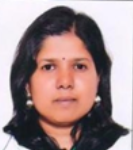
Environmental Engineering

Computer Aided Structural Engineering.

COMPUTER AIDED STRUCTURAL ENGINEERING.

Environmental Engineering

Computer Aided Structural Analysis

Engineering.

M. Tech Traffic and Transportation Engg.

Assistant Professor Environmental Engineering


M.E STRUCTURAL ENGINEERING

Geotechnical Engineering

Traffic and Transportation Engineering

GEOTECHNICAL ENGINEERING

Geotechnical Engineering


Geomechanics and Structures

Environmental Engineering.

Structural Engineering and Construction Managemen
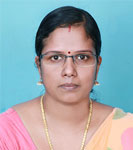
,Geo-technical Lab

Explore Civil
Work Based Learning
Work based learning strategy is adopted for providing the students with real life experiences where they can apply their academic and technical skills and develop their employability. Students develop the habit of group work through such excercises. Students are raised to the employment requirements of industry. Some of the on field works undertaken by students are enlisted in the following link.
Work Based Learning- Implemented Projects
Video 1:
Link - https://youtu.be/e900DKBM3Jc
Title: Design steps_simply supported beam
Description: RCC beam design procedure for beginners as per IS code (in Malayalam) - for S5 KTU Civil students
Video 2:
Link - https://youtu.be/o6Y3i6zedNE
Title: Design steps_Torsion
Description: RCC beam design procedure for beginners as per IS code (in Malayalam) - for S5 KTU Civil students
Alumni Testimonials

Ajith C B
Class of 2022
B.Tech, Civil Engineering
SCMS School Of Engineering & Technology

Antony Joh Moothedan
Class of 2017
B.Tech, Civil Engineering
SCMS School Of Engineering & Technology

Beshy Kuriakose
Class of 2006
B.Tech, Civil Engineering
SCMS School Of Engineering & Technology

Careena Merine Jojius
Class of 2020
B.Tech, Civil Engineering
SCMS School Of Engineering & Technology
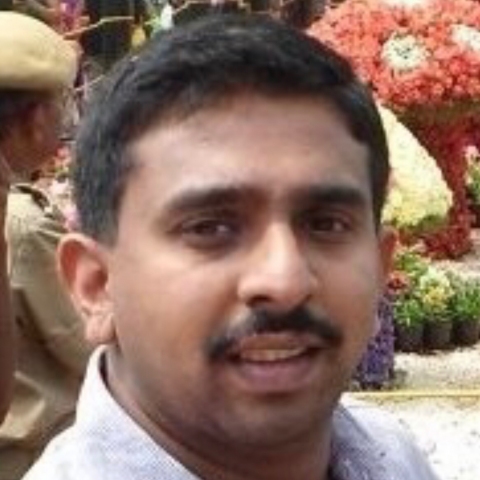
Dijo Mathew
Class of 2008
B.Tech, Civil Engineering
SCMS School Of Engineering & Technology



